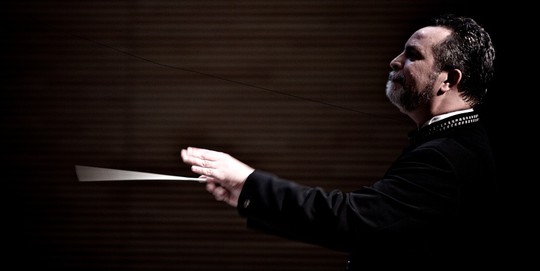A hundred and two years ago the end of music was announced. This is how the premiere of The Rite of Spring by Igor Stravinsky was summarised. The composer aimed at shocking the audience. “Don't be afraid of The Rite being booed. This is just the way it has to be,” he wrote to his mother. His compatriot Scriabin with his Prometheus wanted to bring the audience to musical ecstasy, which was supposed to make the listener a better person. Both these pieces were composed to generate strong emotions, making references to the primary power of two elements: fire and earth.
“The Rite of Spring is the most dissonant and out-of-tune sounding piece written so far (…),” wrote the reviewer at the “Le Temps” newspaper in 1913. “No matter what note you are expecting at a given time, from the very first to the very last tact that note never comes.” Stravinsky broke with long-established European music tradition. As if this was not enough, the choreography to his ballet was created by Vaslav Nijinsky, an iconoclast, who presented the audience of the early 20th century with a type of dance that today we would call a modern dance. The premiere was held in a “insolently” modern Théâtre des Champs Elysées built of reinforced concrete, and the scandalous character of every detail was ensured by “an unscrupulous manager”, Sergei Diaghilev. It is then no surprise that fights and demands of satisfaction happened during the premiere.
However, music did not cease to exist, and composers — Stravinsky's successors — did not hesitate to try anything they had in mind in the previous century. Still, the emotional load of this piece did not lose any of its validity. Pagan ritual connected with the change of seasons shows unrestrained power of nature intertwining with wild human sexuality. It reveals hidden primary brutality of people making a bloody sacrifice of a girl selected from among their society. In today's perspective The Rite of Spring can be seen not only as the beginning of a new era in the history of music, but also as the announcement of a new era in the history of humanity, started with the break-out of World War I, merely a year after Stravinsky's ballet premiere.
Prometheus: The Poem of Fire is an equally provocative piece, composed not long before The Rite of Spring. It is a realization of Scriabin's idea of the mysterium of art, combining music, light, and movement. It blends and crosses the border between performers and audience. Its composer is also an author of a dissertation entitled Prometheus Fantasies, where he explains that music is supposed to shock the audience in order to bring listeners to catharsis and elevate them to a higher level of morality. How will the audience of Wratislavia react to such unconventional pieces? We will sure find out during the concert of the excellent Polish National Radio Symphony Orchestra in Katowice under brilliant Alexander Liebreich.

Wratislavia Cantans
Skriabin - Prometheus, Stravinsky - The Rite of Spring
12.09.2015
Sat.
7:00 PM
NFM, Main Hall
Programme:
A. Skriabin Prometheus Op. 60
***
I. Stravinsky The Rite of Spring
Performers:
José Maria Florêncio – conductor
Varvara - piano
Polish National Radio Symphony Orchestra in Katowice
Polish Radio Choir
Andrzej Korzeniowski - choirmaster
